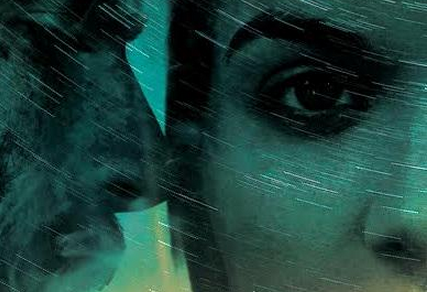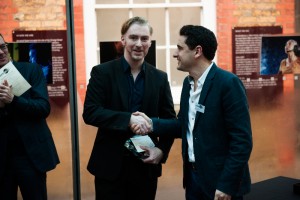Valhalla: An interview with Paul Murphy

Paul Murphy is a London-based playwright. With no university degree or formal training in playwriting, he was the joint winner of Theatre503’s inaugural Playwriting Award in 2014 for his ground-breaking script, Valhalla. He has had a short play staged at Theatre503 as part of the venue’s Rapid Write Response programme, but Valhalla is his first full-length piece.
You’ve had very little in the way of formal training for playwriting. What inspired you to go down this path?
I was taken to the theatre as a child. Mainly amateur dramatic productions, but it clearly had an impact. After that I saw as much as I could at the Octagon Theatre in Bolton. It was, and still remains, an excellent theatre and I was lucky to see plays by Shakespeare, Arthur Miller, Eugene O’Neill and Tennessee Williams. After that, I borrowed plays form the local library and discovered Mamet, Osborne, Pinter etc. Then followed a long period, still ongoing, of watching and reading plays and simply sitting down to write.
What compelled you to choose Theatre503 and the Rapid Write Response programme? How did the experience shape you both as a writer and as a person?
It gave me the chance to have my work staged. It’s only in seeing things staged that one learns what works and what doesn’t. Sending pieces in for the RWR is also a good way of making contact with the Literary Department and seeing what work other writers are presenting.
How important do you feel Theatre503’s work is to the UK theatre industry? Is it becoming increasingly difficult for new plays and writers to break through?
I think Theatre503 provides the best chance for first-time writers to get work staged. They have numerous initiatives for writers, an excellent Literary Department and are willing to take a chance on writers at the very start of their careers. It’s a great benefit to writers that the Theatre503 Playwriting Award has been established. Likewise, the Bruntwood Prize and The Verity Bargate award to name but a few.
Who are some of the writers who have been an influence for you whilst creating Valhalla, or in general?
In general; Michael Haneke, Christopher Hampton, William Goldman, Michael Frayn, Nora Ephron, Paolo Sorrentino to name but a few. They all have facets that I admire. Haneke has a rigorous, insistent questioning nature and little concern for the easily explicable. Nora Ephron’s work has some of the best dialogue in modern cinema. One of the things I so admire about Christopher Hampton’s work is that one can read The Philanthropist, Total Eclipse, The Talking Cure, Savages and never conclude they were by the same person. All have a beautiful economy and are intellectually incisive but he manages to never let (or never seem to let – there’s the trick) himself get in the way of his work.
Why did you choose to set the play in the vast, wild landscape of Iceland?
The country is never actually named, so it’s really an amalgam. An Iceland of my imagination. I took a trip to Iceland about two years ago and thought it would be an interesting location for a play. I’ve tried to evoke the sense of isolation in the play. It’s beautiful and captivating but one can never turn ones back on nature as it is capable of such destructive force.
What was the first spark of inspiration that got the play started for you? Was it a theme, an issue, a character?
I was more interested in the technical challenge of writing a two-hander. They’re very difficult to pull off and it was something I hadn’t tried before so the challenges were interesting. But the topic of Epigenetics was important in the narrative. It’s a field of science that hasn’t had much exposure in popular culture but it appealed to me as there are still many aspects of it that science doesn’t yet understand.
The ethics of genetic research and the issues it raises are an extremely relevant topic today. Did you feel intimidated grappling with such a volatile subject?
No. The challenge is only to find a new and dramatic way of presenting the arguments. That itself is enough to keep one preoccupied for several months.
Assistant director Tom Latter said in a blog post, “part of the play’s brilliance is that it won’t be for everyone.” Do you feel that it was a risky project in this way and, if so, did you deliberately make it so?
No, it’s written in sense for the “me” in the audience. I wrote something I would want to go and watch. I don’t really feel any sense of risk.
And finally, what have you learned from this first success that you will take forward into your future work?
Write only what interests you. And then re-write it.
Isabelle Milton
Photo: Alex Harvey-Brown
For further information about Paul Murphy visit here.
Watch the trailer for Valhalla here:






















Facebook
Twitter
Instagram
YouTube
RSS